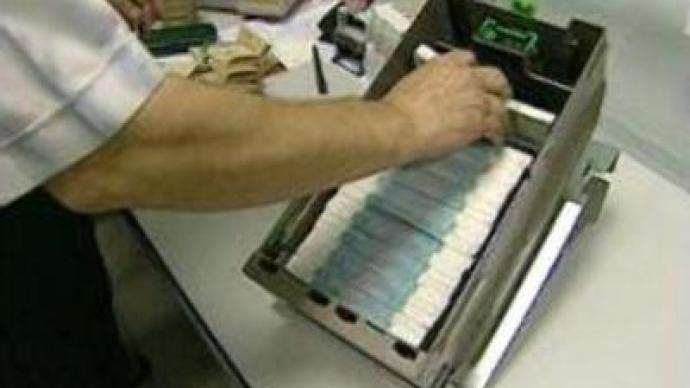Urgent measures to combat high inflation in January

Russia's key ministries and the Central Bank have proposed urgent anti-inflation measures after consumer prices rose by 1% in the first nine days of the year. But analysts say the fight against inflation might not be necessary.
Under the proposed measures, the Central Bank would soak up the cash by issuing bonds. But some analysts say this could distort the bond market.“Taking liquidity from the market poses sort of a different risk in case of low oil prices. This could potentially result in a liquidity mismatch of private banks, which usually don't purchase these bonds, but could suffer from liquidity squeezing. I think the Central bank's position at the moment will be to stay away from the market and wait for more news from the international commodity market,” thinks Natalia Orlova, Alfa Bank's Chief Economist.Other ideas to combat inflation include a windfall tax on the earnings of the state gas giant Gazprom.On the other hand, fighting inflation might not be as urgent as in seems. January is considered a high-inflation month and this year is no exception. There's a seasonal increase in food prices, holiday shopping, and wage bonuses.“It is a concern every January. Like last year we started with inflation in January of 2.4%, but then it went to 9% annually, so basically January accounted for almost 1/3 of inflation built up in 2006. This year we have the same picture. It is a concern because you never know how managed inflation will be in the future months. However, looking from the historical side it's a traditional thing for Russia. Every January starts with high inflation. And I don't think it's a major factor of concern,” claims Vladimir Tikhomirov, Head of Research, Uralsib.Just for the month of January, inflation is expected to reach 2.2% which is slightly lower than the same month last year.At the moment, the government's main tool to fight inflation is the Stabilization Fund, set up in 2004 to absorb extra oil and gas revenues. It is also allowing the rouble to appreciate, which makes imports less expensive, helping to reduce inflation.Regardless of the measures used, analysts say the current inflation spike is temporary, and the government will still be able to meet this year's target of 8%.At the moment, the government's main tool to fight inflation is the Stabilization Fund, set up in 2004 to absorb extra oil and gas revenues. It is also allowing the rouble to appreciate, which makes imports less expensive, helping to reduce inflation.Regardless of the measures used, analysts say the current inflation spike is temporary, and the government will still be able to meet this year's target of 8%.
You can share this story on social media:












